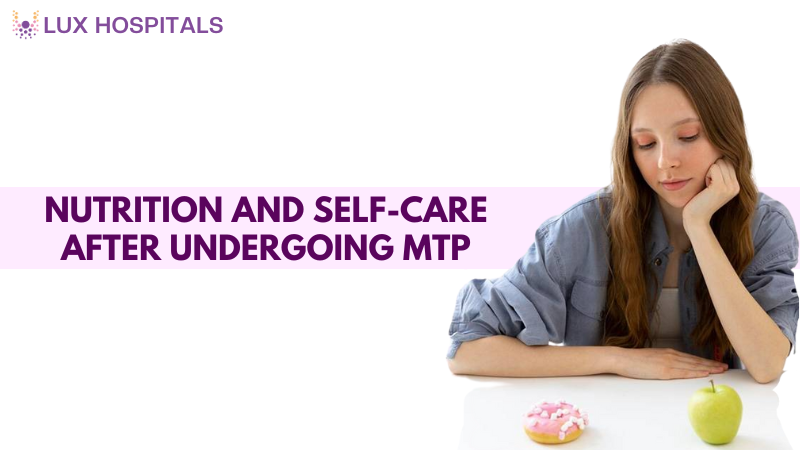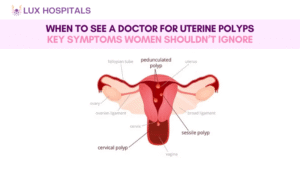Nutrition and Self-Care After Undergoing MTP

Undergoing a medical termination of pregnancy (MTP), especially multiple times (for instance, 12–17 times), places significant physical, hormonal, and emotional demands on a person’s body. While the decision and its circumstances are deeply personal, it becomes especially vital to practice intentional nutrition and self-care to support recovery and long-term health. In this article, we’ll explore how to nourish your body, manage healing, rebuild strength, and tend to your emotional well-being.
Why Special Care Matters After Repeated MTPs?
Undergoing a single MTP (whether medical or surgical) already involves blood loss, hormonal shifts, and tissue repair. When this procedure is repeated many times (12 to 17 or more), cumulative stress can magnify risks: nutrient depletion, uterine or cervical trauma, hormonal imbalance, potential for scarring, lowered immunity, and emotional strain. Over time, your body may have more difficulty restoring reserves (iron, B-vitamins, protein, essential fats, etc.). Hence, a more intentional, supportive self-care and nutrition plan is crucial.
Foundational Principles of Post-MTP Recovery
A more intentional, supportive self-care and nutrition plan is crucial.
Moreover, repeated procedures may increase risks of complications like uterine adhesions (Asherman’s syndrome), infection, or weakened uterine lining, making careful recovery even more essential.
Rest, Safety & Monitoring
Your body needs rest first. Avoid heavy physical activity for at least several days and follow your doctor’s advice on when you can resume your regular routines. Monitor for signs of bleeding, pain, discharge, fever, or infection, and ensure that all medical follow-ups are maintained to confirm that healing is progressing.
Avoid Internal Irritants
To reduce infection risk, do not insert anything into the vagina (tampons, sex, douching) until your clinician confirms it’s safe. Use sanitary pads, wear loose, comfortable clothing, and maintain genital hygiene with gentle external cleansing.
Emotional & Mental Self-Care
Psychological consequences may intensify with repeated MTPs: feelings of guilt, grief, relief, confusion, shame, or regret. Hormonal shifts can amplify mood swings. It’s vital to seek support—counselling, peer groups, trusted friends, or mental health professionals. Journaling, meditation, light movement (as allowed), and rest can help.
Nutrition Strategy for Recovery & Rebuilding
Here are key nutrition priorities and sample food strategies to support your body after multiple MTPs:
1. Replenish Iron & Restore Blood
Blood loss is a central stressor in MTPs; repeated loss heightens the risk of iron deficiency and anaemia. Include heme-iron sources (lean red meat, poultry, fish, liver) plus plant iron (spinach, lentils, beans) paired with vitamin C-rich foods (citrus, bell peppers, tomatoes) to boost absorption.
In many settings, your doctor may prescribe iron supplements. Take them with food and vitamin C, but avoid taking them with calcium or caffeine, which inhibit absorption.
2. Emphasise Quality Protein for Tissue Repair
Protein supports the healing of the uterine lining, blood vessels, and tissues. After repeated MTP procedures, the demand is higher. Include lean meats, fish, eggs, dairy, nuts, pulses, tofu, and legumes.
If your appetite is low, divide into smaller, frequent protein-rich snacks (e.g. Greek yoghurt + nuts, smoothie with whey/plant protein, egg-based dishes).
3. Healthy Fats & Omega-3s for Inflammation & Hormones
Anti-inflammatory fats help modulate healing and hormonal balance. Sources include fatty fish (salmon, mackerel), flax seeds, chia seeds, walnuts, and olive oil.
Good fat also supports the absorption of fat-soluble vitamins (A, D, E, K), which your body will need in recovery.
4. Vitamins & Minerals: Folate, B-Complex, Calcium, Magnesium, Zinc
- Calcium & Vitamin D: essential for bone health and muscle function, especially if hormonal changes affect bone density. Dairy, fortified milks, green vegetables, and safe sun exposure help.
- Magnesium & Zinc: support immune function, sleep, and tissue healing.
If your healthcare provider recommends, use a multivitamin that complements your diet to fill gaps.
5. Fibre, Hydration & Gentle Digestion
Constipation is common after MTPs (especially if painkillers or inactivity slow digestion). Eat fibre-rich whole grains (brown rice, oats, whole wheat), fruits, vegetables, and legumes. But in the earliest days, prefer easier-to-digest foods (soups, cooked vegetables, porridges) to ease the burden on your gut.
6. Avoid or Limit Certain Foods
- Highly processed foods, excessive sugar, fried foods or trans fats — these can promote inflammation and hamper healing.
- Excessive caffeine and alcohol dehydrate and interferes with nutrient absorption.
- Spicy or very harsh foods can irritate the digestive system.
Progressive Self-Care & Lifestyle Enhancements
Once the acute healing phase is over, the following techniques might help your body and mind even more:
Gentle Movement & Body Awareness
Once your clinician says it’s safe, gentle walking, stretching, and mindfulness yoga can boost circulation, improve mood, and support digestion. Avoid strenuous exercise until fully healed and cleared by your provider.
Sleep, Stress Reduction & Mind-Body Practices
Prioritise restful sleep — the body regenerates during sleep. Use relaxation techniques (deep breathing, progressive muscle relaxation, meditation) to lower cortisol and support hormonal balance.
Routine Health Assessments
Given the history of recurrent MTP, it is prudent to monitor for problems such as uterine integrity, hormonal imbalance, or scarring through routine gynaecological exams, ultrasound scans (if recommended), and blood tests (iron, haemoglobin, and hormonal panels).
Support Systems & Mental Healing
Healing is not just physical. Having a safe space to process emotions, talk with a counsellor or peer support group, or even engage in expressive arts can help integrate the emotional impact of repeated procedures.
Sample Daily Recovery Meal Plan (First Week)
Here’s a simplified sample day (adjust portions for your needs, cultural preferences, allergies):
- Morning: Warm water + lemon; oatmeal cooked in milk or water with added flaxseed, a spoonful of peanut butter, and a few berries.
- Mid-morning snack: Greek yoghurt with chopped nuts + fruit (like kiwi or orange)
- Lunch: Lean protein (chicken/fish or lentils) + cooked greens (spinach, kale) + brown rice or quinoa + steamed vegetables
- Afternoon snack: Smoothie with banana, plant/protein powder, spinach, and almond milk
- Dinner: Soup (e.g. bone broth or vegetable broth) with tofu or chicken pieces + steamed vegetable side
- Evening snack (if needed): Warm milk or herbal tea and a handful of walnuts or almonds
This plan emphasises iron, protein, healthy fat, fluids, and digestibility.
Conclusion
Recovering from a single MTP demands care; recovering after many repeated MTPs requires that care to be even more intentional, grounded, and gentle. Through restorative nutrition, rest, emotional support, and consistent medical follow-up, you can help your body rebuild strength and resilience. At Lux Hospitals, we emphasize comprehensive post-MTP care, ensuring every woman receives the medical attention and emotional support she deserves. Remember: you deserve compassionate self-care—listen to your body, lean on trusted support, and seek professional guidance as needed.
Frequently Asked Questions
After abortion, prioritise iron-rich foods (red meat, spinach, legumes), protein (eggs, fish, dairy, beans), and vitamin C–rich fruits (oranges, bell peppers) to enhance absorption. Include healthy fats and whole grains to support healing and hormonal balance. Avoid processed, fried or sugary foods.
Most people recover from a medical or early surgical MTP within a few days to a couple of weeks. However, bleeding or spotting may continue up to 4 weeks. After repeated procedures, full recovery (restoring nutrients, hormone balance) may take longer.
Repeated abortions, especially if complicated, may raise risks of uterine scarring (Asherman’s syndrome) or damage, which can impact fertility—but not always; many people retain fertility. Regular medical follow-up and monitoring are critical.
You should wait until bleeding subsides and your healthcare provider gives the green light; typically, this is 1–2 weeks for many people, sometimes longer after surgical procedures. Avoid inserting anything until fully healed to minimise infection risk.
See your healthcare provider immediately if you have heavy bleeding (soaking a pad each hour), large blood clots, fever, foul-smelling discharge, severe pain, or if pregnancy symptoms persist. Also, follow up as scheduled to confirm the uterus has healed completely.




















